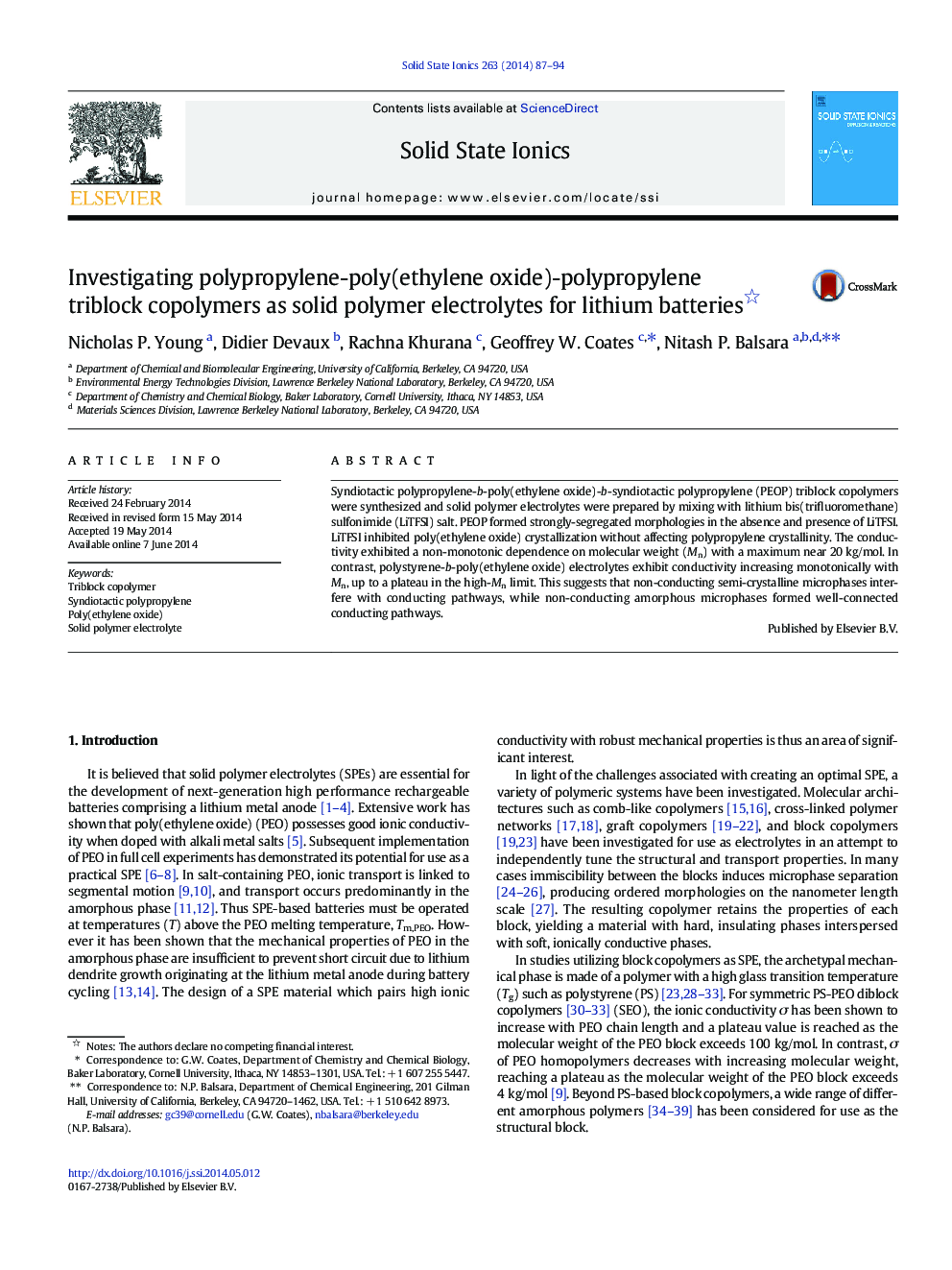| کد مقاله | کد نشریه | سال انتشار | مقاله انگلیسی | نسخه تمام متن |
|---|---|---|---|---|
| 1293859 | 1498279 | 2014 | 8 صفحه PDF | دانلود رایگان |

• Synthesized syndiotactic polypropylene-poly(ethylene oxide) triblock copolymers
• Solid polymer electrolytes (SPEs) of these copolymers and LiTFSI were prepared
• These SPEs contained a semi-crystalline block as the mechanically reinforced agent
• Thermal properties, ionic conductivity, and self-assembly of the SPEs are reported
• An unusual ionic conductivity trend was observed for these SPEs
Syndiotactic polypropylene-b-poly(ethylene oxide)-b-syndiotactic polypropylene (PEOP) triblock copolymers were synthesized and solid polymer electrolytes were prepared by mixing with lithium bis(trifluoromethane)sulfonimide (LiTFSI) salt. PEOP formed strongly-segregated morphologies in the absence and presence of LiTFSI. LiTFSI inhibited poly(ethylene oxide) crystallization without affecting polypropylene crystallinity. The conductivity exhibited a non-monotonic dependence on molecular weight (Mn) with a maximum near 20 kg/mol. In contrast, polystyrene-b-poly(ethylene oxide) electrolytes exhibit conductivity increasing monotonically with Mn, up to a plateau in the high-Mn limit. This suggests that non-conducting semi-crystalline microphases interfere with conducting pathways, while non-conducting amorphous microphases formed well-connected conducting pathways.
Journal: Solid State Ionics - Volume 263, 1 October 2014, Pages 87–94